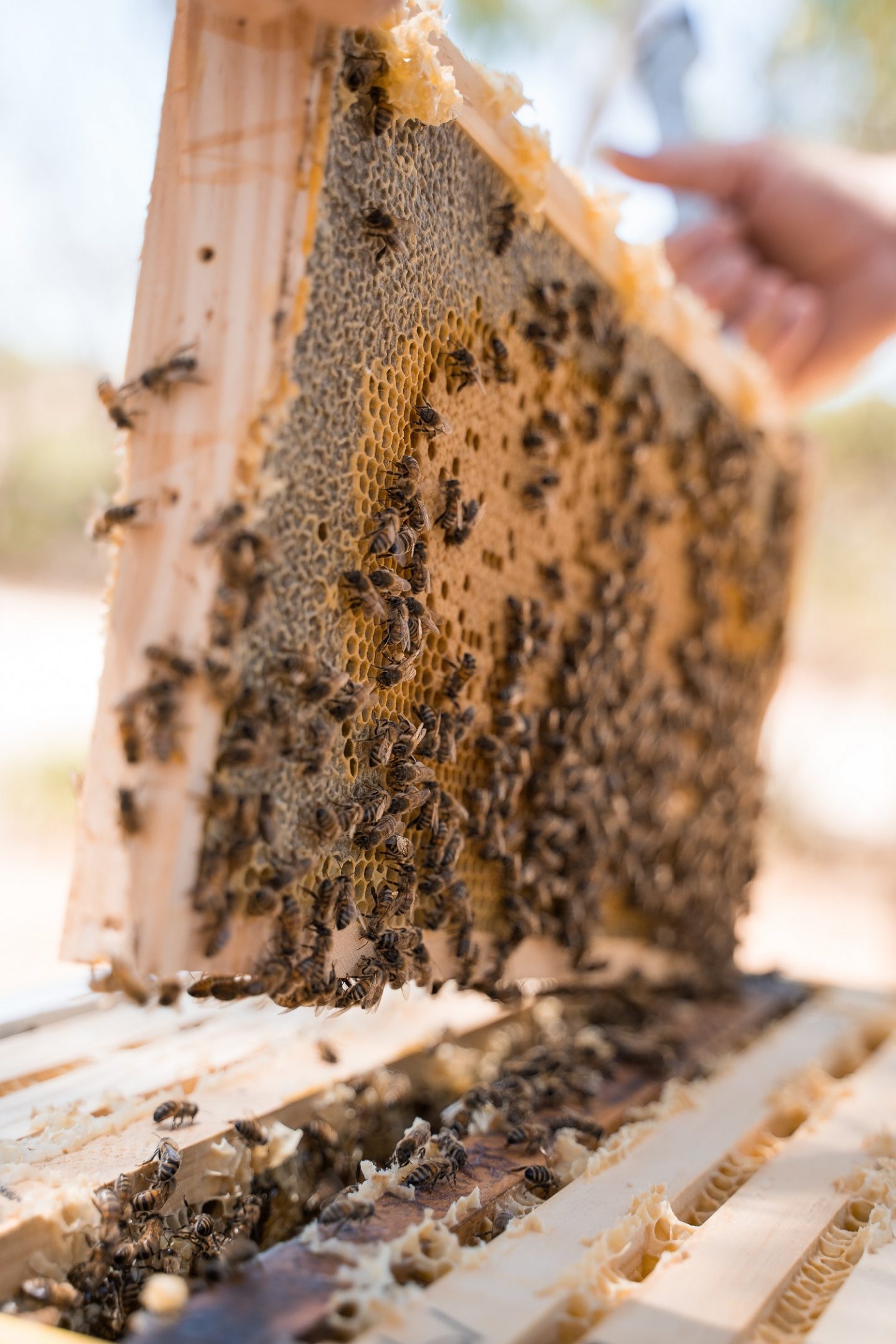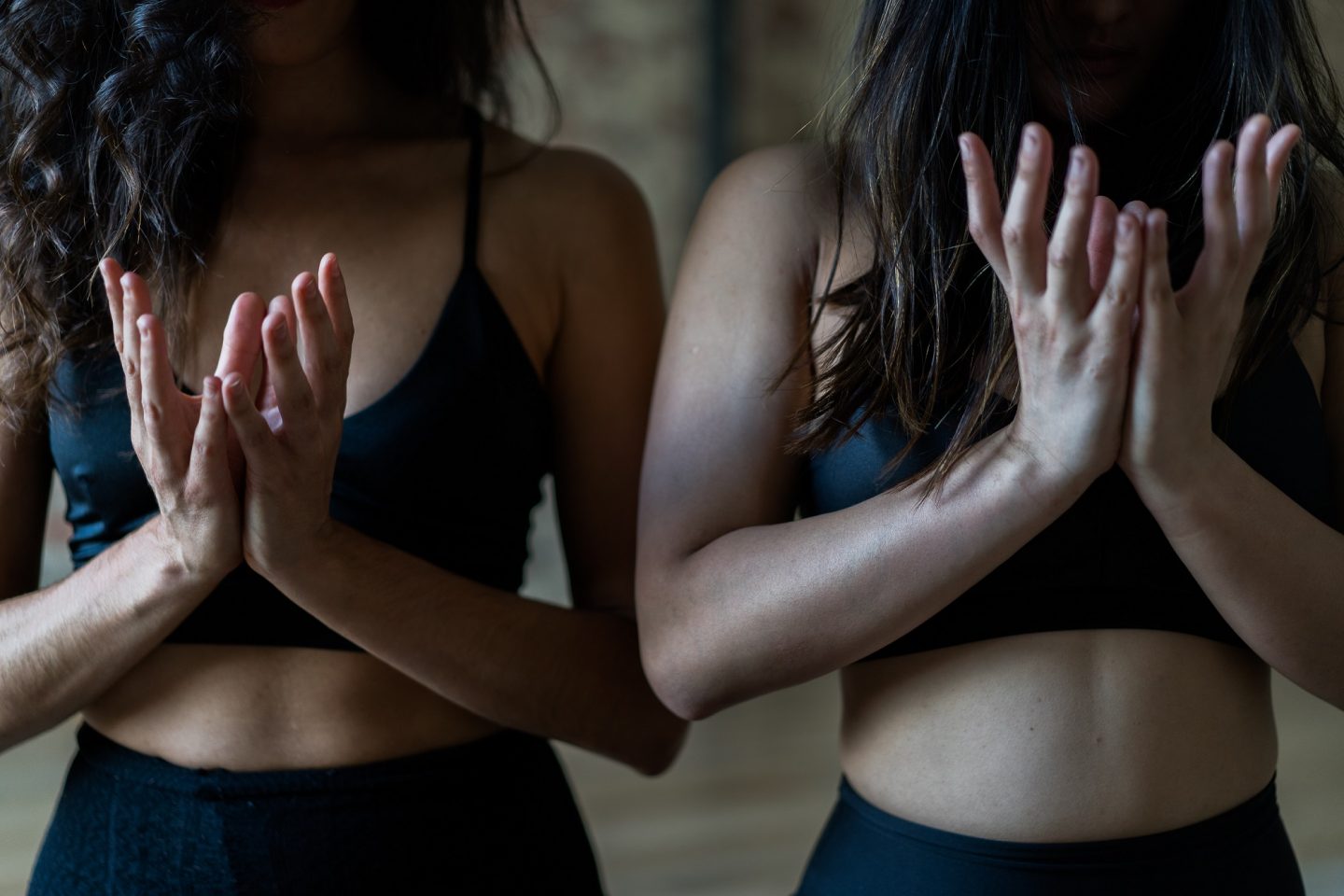The Ripple Effect explores a new, local funding model for community projects

From beekeeping to recycled 3D printing, a new flash fund is embracing micro-donations to create waves through local communities.
25 bucks is the cost of an entree pasta at Amalfi’s. At East End Cellars it’ll buy you a bottle of 2018 Unico Zelo Cherry Fields Dolcetto – but you’ll have to drink it at home as the change won’t stretch to corkage.
But at an Adelaide yoga studio, Amber Cronin and Triton Tunis-Mitchell are turning $25 contributions into curated community action via their new initiative, The Ripple Effect. While the era of Kickstarter and GoFundMe has made online crowdsourcing a ubiquitous fundraising tool for many artists and organisations, The Ripple Effect offers a small-scale solution through an ancillary fund that issues grants to “transformational projects that build and shape communities.”
The fund’s origin story is a simple one. A jar sits on the counter at Halifax Street’s Power Living yoga studio – co-owned by Tunis-Mitchell, and where Cronin works – collecting gold coins in return for mat hire. With several classes being held each day, it regularly nets hundreds of dollars a month, which the studio distributes to various charities. Cronin thought, “How can we be a little more strategic with something we are already doing, to maximise our impact in a meaningful way?”
The process consists of a brief online application (or video submission, if written communication is a hindrance) followed by a meeting of the fund’s trustees. One applicant is selected each month, with a no strings attached $1500 boon being wired to their account.
As a visual artist and co-founder of The Mill, Cronin has traversed far and wide across Australia’s funding landscape. Like our rivers, it’s rapidly drying up, as surplus-chasing state and federal governments contract funding across arts and community organisations. In light of this complicated and ultra-competitive environment, Cronin aimed to make The Ripple Effect was straightforward and as user-friendly as possible. “For me it was all about accessibility. How can we keep this thing simple for us and for the people who might apply?” she says. The goal was, “The most reach with the least amount of fuss.”

“Applying for grants has become increasingly bureaucratic and leveraged towards people who are great at writing grants, not always with the best ideas.” says Tunis-Mitchell – who himself fought for funding as a founding member of Adelaide-born circus company, Gravity And Other Myths. For him, it’s important that “people’s time and energy stays in their project.”
While seemingly similar initiatives like Victorian burger chain Grill’d’s Local Matters program have proved somewhat problematic in the light of allegations of staff underpayment, outcomes funded through The Ripple Effect become a direct reflection of its community. Capital is sourced from a collective, each contributing just $25 a week.The group convenes one Tuesday a month to review submissions and advocate for their preferred applicant, before putting the decision to a vote. Presently, the board sits at 10 members, with the additional $500 being donated by Power Living.
The Ripple Effect provides an accessible portal through which members can enact the sort of change they want to see around them, while removes financial barriers for people who might feel locked out of traditional philanthropic activity. “The trustees are amazing,” Tunis-Mitchell says. “All of them have their own reasons for being involved, but a common theme is around helping communities connect and thrive.”
The first round opened and closed in August 2019, attracting 14 submissions from a diverse pool. “The projects that have reached us thus far have been a window into incredible minds working at great things in Adelaide,” Cronin says. “It fills me with immense optimism.”
For its debut project, the panel selected Uniity; “A friendship program”. Similarly simple to The Ripple Effect in structure and ambition, Uniity is a volunteer organisation bridging intergenerational gaps, uniting communities and sustaining elder knowledge. It hosts casual ‘Tea and Talk’ events to foster closer connections between – and within – communities. Other projects have since included Crispin Boxhall’s Beekeeping for Beginners, and closed-loop plastic recycling program DCycle.
Uniity co-founder Marigold White says The Ripple Effect fund has provided, “Flexibility to be innovative, to further trial some of our ideas and to test some new ones.” She’ll use the fund to, “Promote and to expand activities. It will accelerate our ability to demonstrate impact and secure ongoing funding to further develop our initiative.”
$1500 might not seem like a big deal – and indeed it isn’t – but it has the power to reignite potential in a project, or spur it on to greater things. Tunis-Mitchell is excited about reaching people, “In that beautiful first moment of a project, where an injection of a little bit of cash and confidence can go a long way.” It’s these small wins that often make the difference between an idea flourishing or merely scraping by.
Cronin positions The Ripple Effect as, “part of a bigger ecology of support”. “Hopefully we can be the thing that makes it possible in those first moments, or at the breaking point before the acceleration into something great.”
Photography:
notanotherphotosite.com